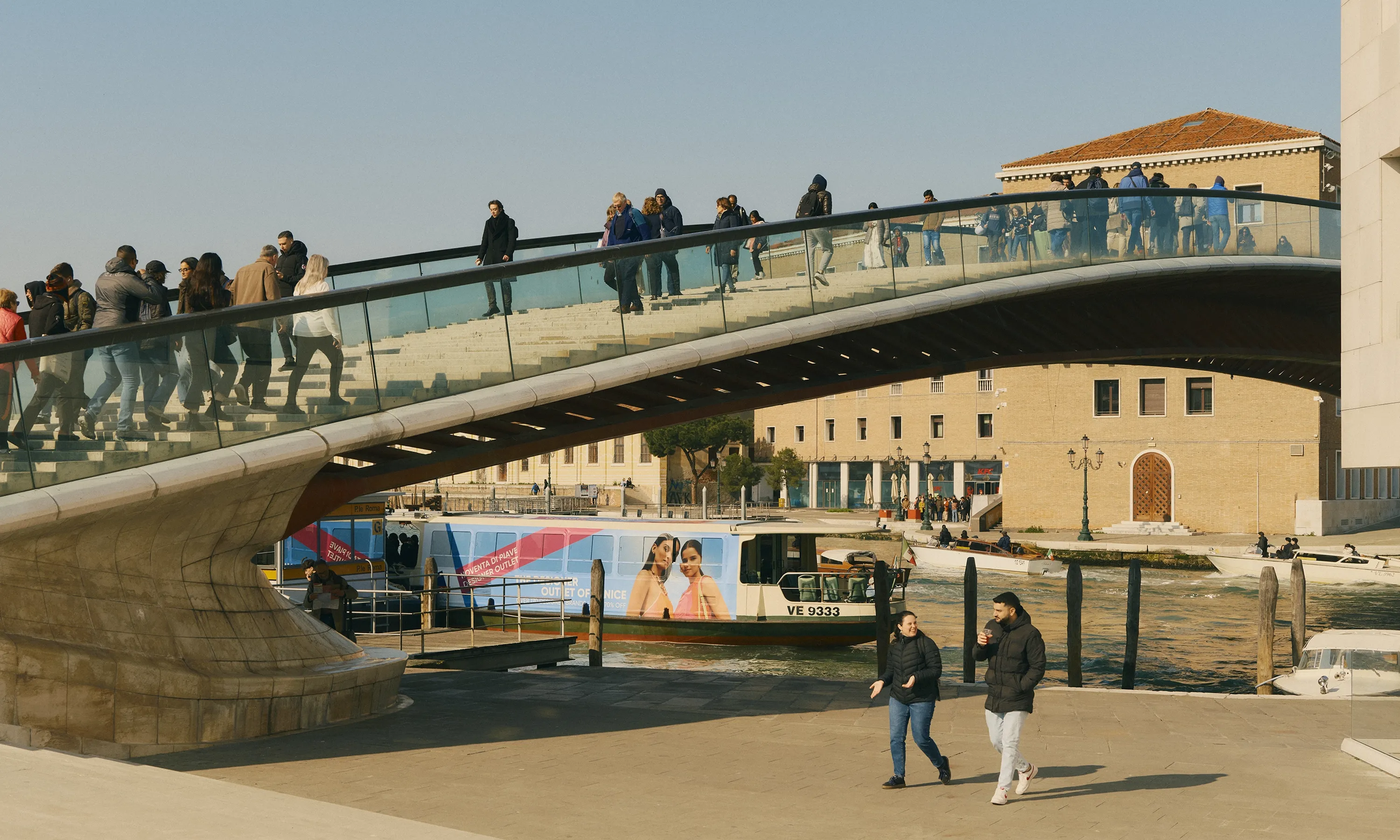EXPERIENCE-PACKED
PROGRAM
Immerse yourself in three days of dynamic discussions, incisive workshops, and one-of-a kind experiences designed for maximum impact. Set against Venice’s extraordinary venues, intimate networking dinners, and curated experiences, the Forum’s structured yet dynamic schedule ensures meaningful dialogue, actionable insights, and powerful connections, all designed to inspire real-world solutions for a sustainable, flood-resilient future.
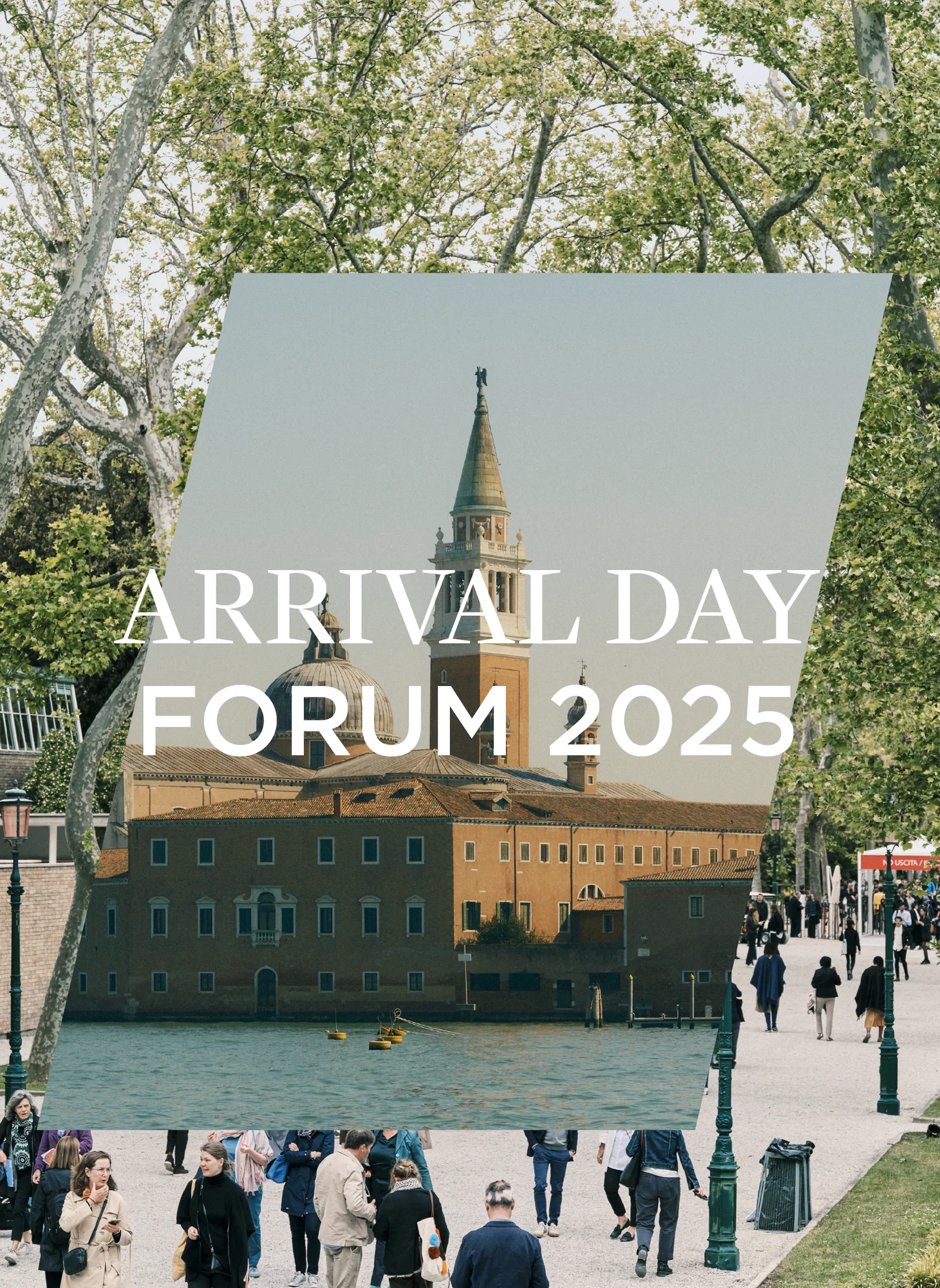
Arrivals – Delegates arrive in Venice throughout the day and get settled.
Ice-breaker and Welcome Dinner – An informal kick-off dinner at the Hilton Molino Stucky, allowing participants to meet and mingle in a relaxed setting.
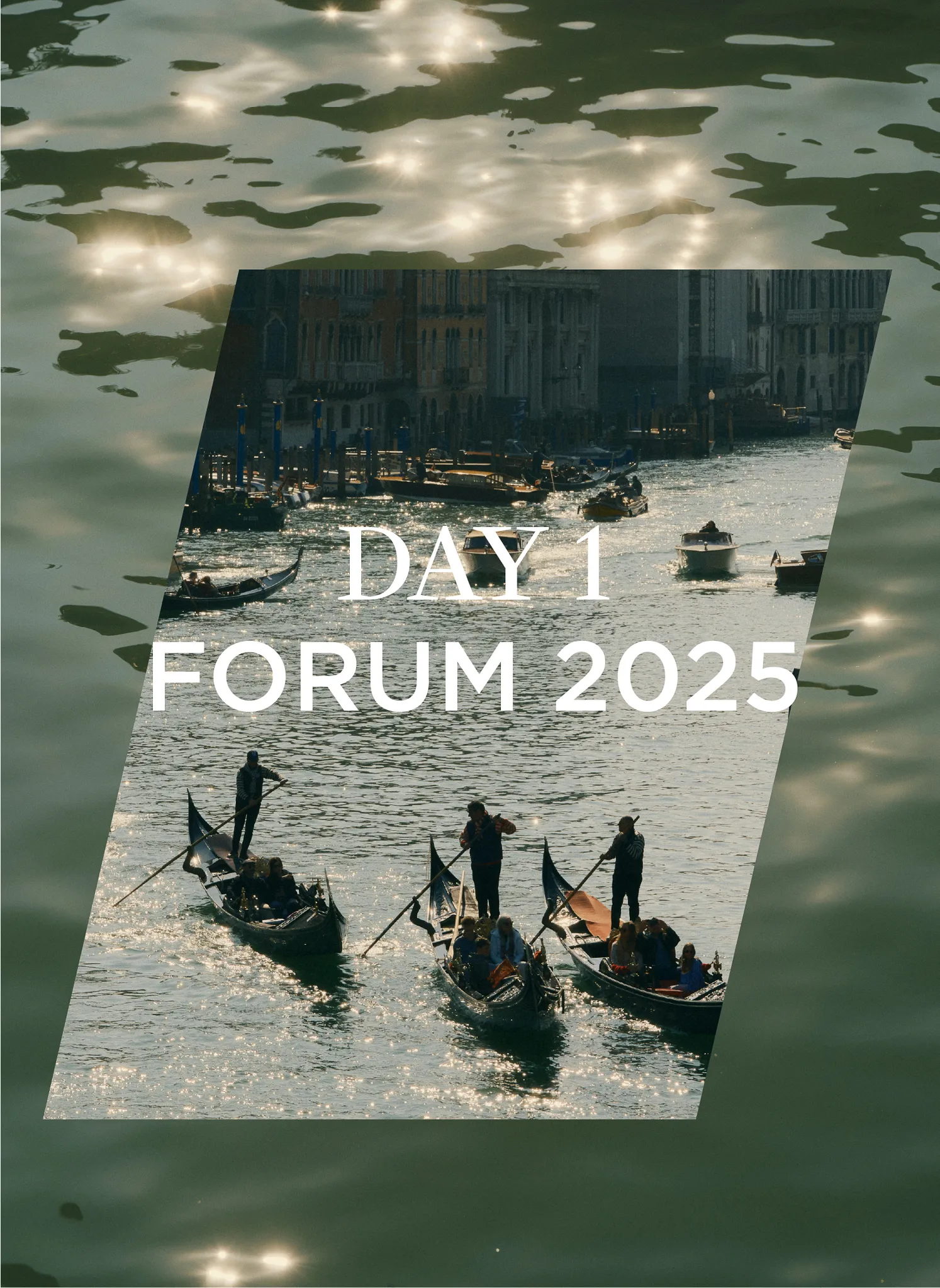
Morning – Opening Keynotes: The day begins with breakfast and welcome addresses ahead of two keynotes that frame the challenge of flood resilience.
Session 1: Parallel breakout sessions in three themed tracks – Retreat, Resist, Respond – featuring concise expert talks followed by group discussions.
Lunch & Networking
Session 2: A second round of parallel sessions, rotating through new case studies and perspectives on the Retreat, Resist, Respond themes.
Evening – Giudecca Dinner: Attendees travel by boat to Giudecca island for dinner. This off-site meal offers a taste of authentic Venice and a chance to continue conversations in an informal atmosphere.
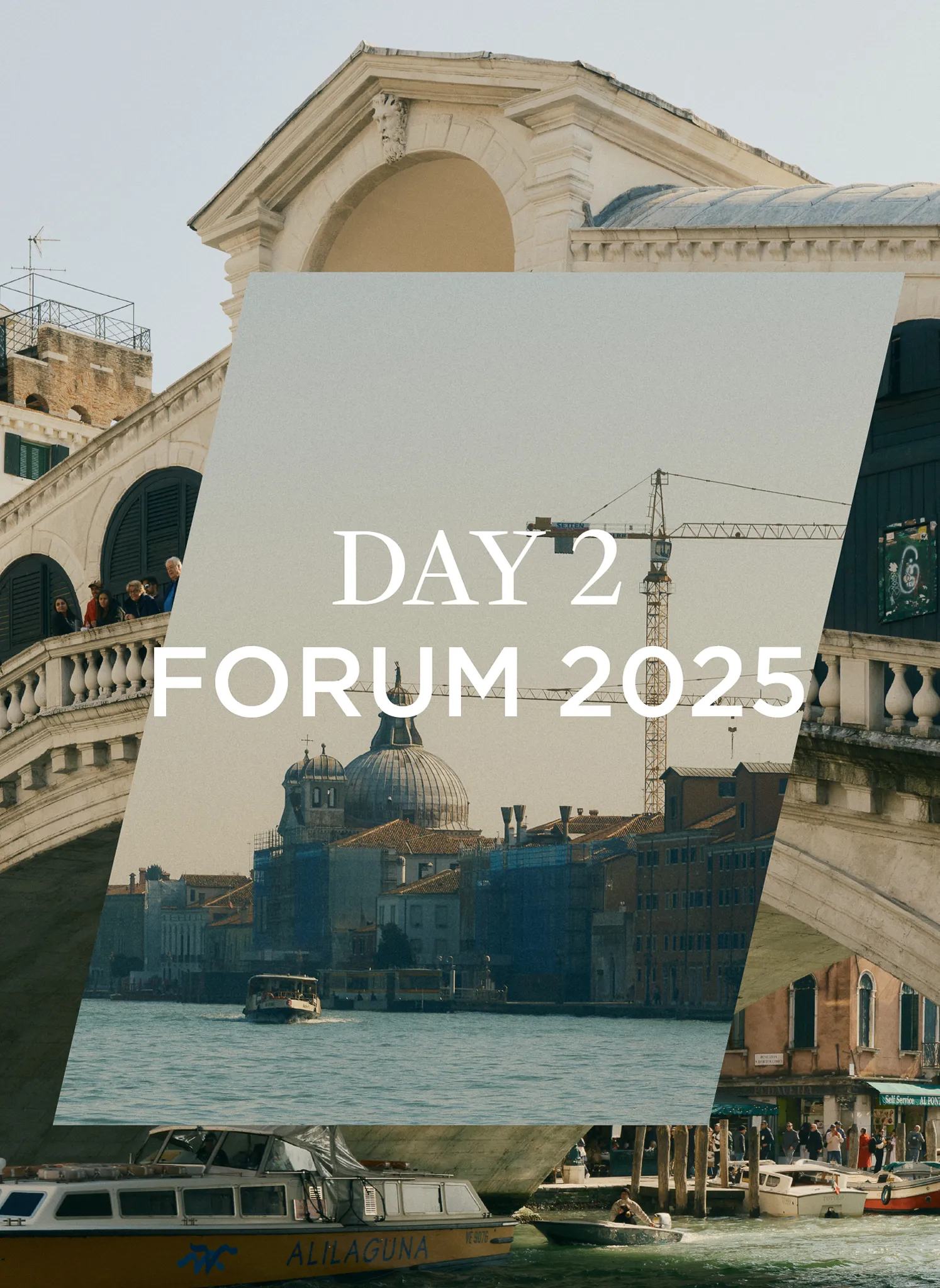
Session 3: After breakfast, the final set of parallel expert talks and discussions unfolds in each track Retreat, Resist, Respond.
Interactive Workshop: A facilitated workshop brings all participants together for a structured reflection, moving from personal insights to collective action planning.
Lunch & Break
Holcim Foundation Awards 2025 Ceremony: delegates reconvene at the historic Teatro Piccolo for the 2025 Awards Ceremony – a highlight event celebrating innovation in sustainable construction worldwide.
Evening – Celebratory Gala: An aperitif is followed by a celebratory dinner at Officine 800, a stylishly repurposed industrial venue.
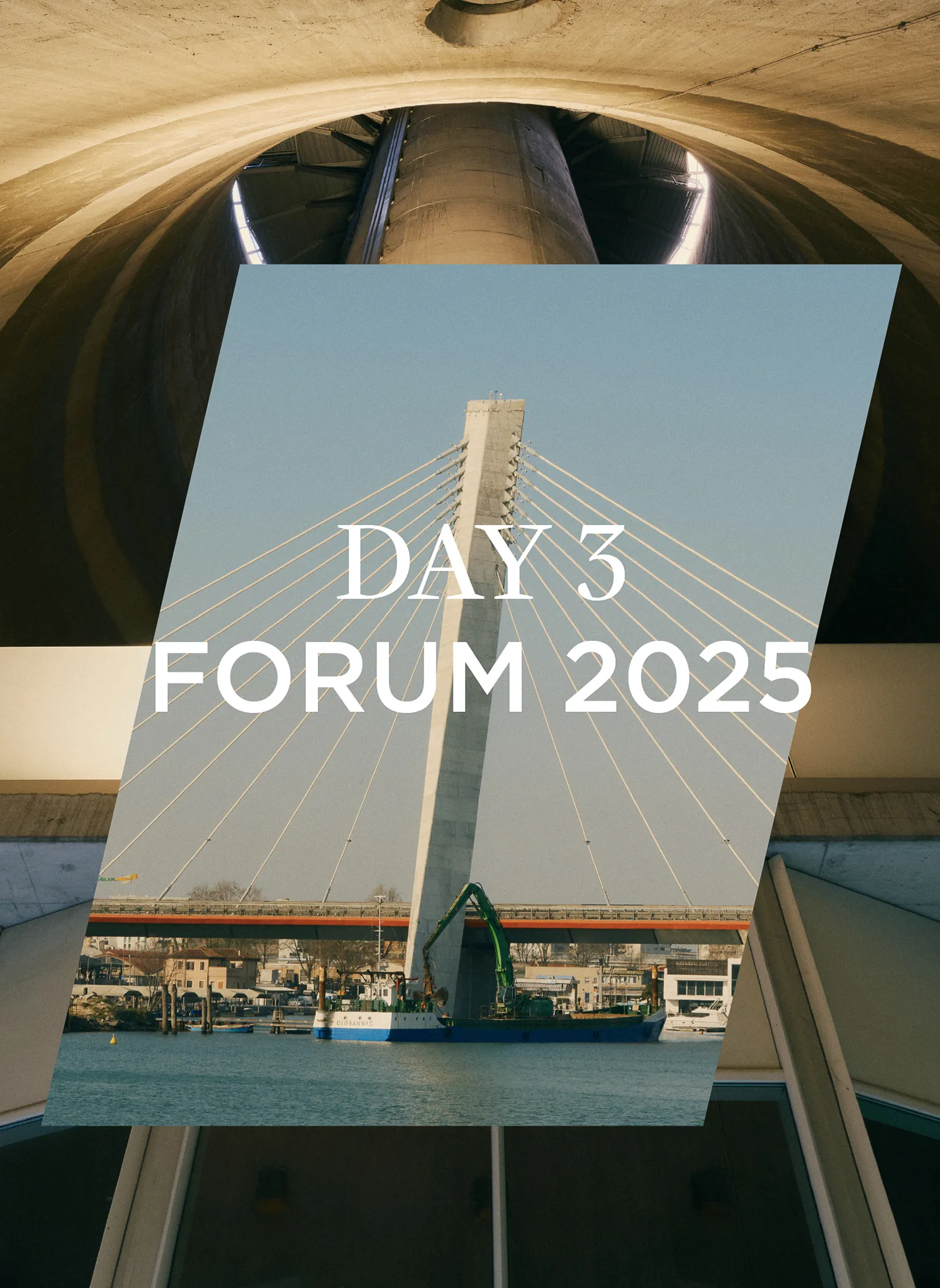
Morning – Closing Plenary: All participants gather at the Procuratie Vecchie, a newly restored Renaissance building on St. Mark’s Square, for a forward-looking discussion that will distill the Forum’s learnings into strategies for global flood resilience.
Farewell Lunch: A “flying” lunch at the Procuratie Vecchie wraps up the official program.
Departures – As the Forum comes to an end, departures are planned for late afternoon and evening. Participants leave Venice informed, connected, and inspired – carrying new insights and momentum back to their home cities.
SESSION
TALKS SYNOPSIS
Discover the Forum Session talks - structured around the strategies Retreat, Resist and Respond - that will bring different perspectives from around the world on existing initiatives to build a flood resilient and more equitable future.
RETREAT
-
Managed Retreat: Lessons, Challenges, and the Role of Planners in Transformative Futures | Jola Ajibade, Environmental Geographer
As managed retreat programs expand globally, it is critical to assess whether these programs are reducing exposure to climatic risks, enhancing adaptive capacity, and improving the living conditions of communities or if they instead exacerbate existing vulnerabilities.
This talk draws on lessons from 140 resettlement programs across the Global North and Global South, specifically on case studies from Puerto Rico, Nigeria, the Philippines, Brazil, Fiji, Rwanda, Austria, and the United States. It explores the successes, challenges, and innovations shaping these programs, highlighting key retreat typologies and the factors influencing outcomes, including governance structures, planning strategies, social ties, timing, funding, and economic opportunities.
Additionally, the talk emphasizes how framing and decision-making processes impact the justice and equity of resettlement efforts. I also identify how planners, architects, and nonprofits can participate and champion the design and implementation of more just, equitable, and transformative relocation programs both in the Global North and Global South.
-
Moving Jakarta to Nusantara: A Radical Retreat? | Sofian Sibarani, Architect & Urbanist
Indonesia’s capital relocation from Jakarta to Nusantara is a logical and anticipative response to Jakarta’s urban and environmental challenges. Facing severe congestion, land subsidence, and pollution, Jakarta requires urgent interventions to remain livable. While relocating the capital does not solve all of Jakarta’s issues, it offers a transformative opportunity for a more sustainable urban future.
This discussion explores the design features of Nusantara, shaped by the "Nagara Rimba Nusa" concept, which integrates a green city approach, renewable energy, smart mobility, and climate-resilient infrastructure. Nusantara aspires to be a model for future cities by combining sustainability with locally rooted solutions. It seeks to rediscover Indonesia’s urban planning wisdom and vernacular architecture, enhanced by parametric analytical tools for future-ready development. While Nusantara is part of the solution, revitalizing Jakarta remains crucial to ensuring a balanced and resilient urban future for Indonesia.
-
Relocation Mechanisms Across Europe: Governance, Compensation and Acceptance | Thomas Thaler, Economist & Geographer
Planned relocation is increasingly recognized as a critical adaptation measure to safeguard communities from the adverse impacts of climate change. While previous studies have documented its logistical and technical challenges, the presentation focuses on the relocation mechanisms across Europe, mainly Austria, Germany, Italy and the United Kingdom. The presentation presents the governance arrangements, compensation strategy and scheme and the individual acceptance across the four countries.
RESIST
-
Sea Level Rise: Adapting or Defending? The Complex Strategy for Saving Venice | Pierpaolo Campostrini, Engineer & Scientist
Sea Level Rise (SLR) is not a new challenge for Venice. Founded over 1,600 years ago in a lagoon – an environment considered "impossible" for settlement – Venice has historically contended with soft soils, lack of potable water, sea storms, and river flooding. Yet, the lagoon provided essential ecosystem services and natural military defense, playing a crucial role in the city’s survival.
When St Mark’s Basilica was inaugurated in 1094, the mean sea level was approximately 1.5 meters below today’s levels. In recent decades, the effects of climate change have caused a significant increase in flooding events, jeopardizing Venice’s cultural heritage and its residents’ lives. Since 2020, as a result of a sophisticated resilience strategy – including the MOSE barriers, raised pedestrian pavements, and Nature-Based Solutions – Venice is protected from flooding. These measures enable Venice to adapt to rising sea levels, while maintaining its historical and cultural legacy, together with the lagoon’s natural features.
-
Shifting Time Horizons in Flood Management: Lessons Learned from the Netherlands | Chris Zevenbergen, Environmental Chemist & Soil Scientist
Coastal cities and deltas are highly susceptible to sea level rise and extreme weather events such as floods. Water-related disasters are already happening more often due to climate change, threatening a large fraction of human and natural environments in these low-lying and sinking areas around the globe. As stress levels of climate change are accelerating, societal and physical transformations are essential for adapting our deltas to climate change.
In the Netherlands, imagination and evidence by design in the form of a long-term spatial vision, played a pivotal role in the past century to set, share and accomplish a new direction to overcome flood disasters by altering the coastlines and riverbeds of the Rhine–Meuse–Scheldt delta. In this presentation a plea is made for a prominent role of design in climate science and delta management to imagine, analyse and communicate future perspectives for climate adaptation in urbanizing deltas.
-
Beyond Barriers: Spongy Cities and Leaky Basins | Justin Abbott, Geotechnical Engineer
Nature plays a crucial role in developing innovative approaches to address the challenges posed by extreme weather events and climate change. By integrating nature-based solutions (green) with traditional infrastructure (grey), we can create more resilient and sustainable systems—what the World Bank refers to as “Next Generation Infrastructure.”
This presentation will explore how innovative green and grey solutions can work together and be applied at multiple scales, from localized street-level interventions to large-scale basin-wide investments in nature assets. It will highlight examples of how cities and communities are leveraging spongy systems to enhance flood resilience, improve water quality, and mitigate the impacts of climate change.
-
Processes of Protection | Matthijs Bouw, Architect
With human-induced climate change as a new constant, climate adaptation will be an ongoing process for the next decades, if not centuries. Each project we design and build will have to be adapted later, often to a condition that is now uncertain. How do we plan and design for change and uncertainty?
Bouw will talk about his experiences such as the design of Manhattan’s coastal protection, the long-term sea level rise planning in the Netherlands, and recent waterfront masterplanning projects, to explore adaptive planning and design strategies to prepare for an unpredictable future, and discuss what it means for the role of designers in this world.
RESPOND
-
Multi-Level Adaptation: Strategies for Managing Diverse Flood Risks in Halmstad | Karina Barquet & Hanna Billmayer, International Development Expert & Municipality Climate Adaptation Strategist
This presentation explores the complex challenge of managing diverse and cascading flood risks, using Halmstad, Sweden, as a case study. Halmstad faces threats from coastal flooding, river flooding, and pluvial (rainfall) flooding, occurring simultaneously or in sequence. The presentation highlights the interconnectedness of these hazards and their potential to trigger cascading failures in critical services, such as transportation, energy, and water systems. It examines how a multi-hazard perspective is crucial for effective adaptation planning.
The discussion will delve into potential solutions, including nature-based solutions, infrastructure improvements, and enhanced preparedness measures, emphasizing the need for multi-level governance and stakeholder engagement to build resilience against compound flood events and their cascading impacts. The presentation aims to contribute to a better understanding of integrated flood risk management in the face of increasing climate variability.
-
The Role of AI for Flood Resilience and Planning | Ana Barros, Water Resource Engineer
Flood resilience is a complex challenge, affecting multiple types of infrastructure. How can Artificial Intelligence help address this issue?
In her presentation, Prof. Barros explores how advanced datasets and high-performance computing have enabled AI models to identify relationships between diverse data sources. This is particularly valuable for assessing emerging flood risks linked to landscape development and urbanization.
Generative flood damage models, fine-tuned with local infrastructure data, can predict cascading flood impacts, assess how upstream changes affect resilience, and evaluate flood-hardening solutions.
We examine failures in water and transportation infrastructure and key lessons from recent disasters, including flash floods and landslides during Hurricane Helene in Asheville and the aftermath of the Palisades Fire in Los Angeles. These cases illustrate AI’s critical role in integrating and synthesizing data, conducting forensic analyses, and curating information to enhance flood resilience and planning.
-
BIG H₂O: Spatial Solutions On / Within / Under Water | Kai-Uwe Bergmann, Architect
BIG H₂O takes the audience on a global journey, showcasing Bjarke Ingels Group’s past and current projects located on, next to, or floating above water. This includes innovative works such as the Urban Rigger in Copenhagen, which repurposes shipping containers for affordable housing on water, and a mindfulness infrastructure project in Bhutan, designed to harmonize with the natural environment. One of the group’s more forward-thinking proposals involves addressing climate refugees with an ambitious plan to create Oceanix, a floating, sustainable city that adapts to the challenges posed by climate change.
The talk will focus on the essential role of water as a resource, a power-generating source, and an ecosystem. It will explore how past generations have learned to live in balance with water, shaping their societies around it. By examining these concepts, the session will present innovative solutions for climate adaptation, offering a vision for a more resilient and balanced planet.
-
The Superpowers of Wetlands | Alys Laver, Animal Biologist and Conservationist
Humans have significantly altered our coastal and marine habitats. With development, infrastructure, and agriculture, we have seen the disappearance, degradation, and disconnection of these wetlands. These superpowered ecosystems are vanishing three times faster than forests. Since the mid-1800s, we have lost approximately 85% of our saltmarshes.
Transformational change is needed as the window for global action is closing. WWT, the charity for wetlands and wildlife, champions a natural solution: restoring wetlands to enhance resilience. Wetlands have the potential to solve some of the world’s biggest challenges. By flowing water back into landscapes, we can help nature recover and bring resilience to lives and livelihoods.
Projects like Steart Marshes in the UK demonstrate how returning land to the sea can strengthen coastal resilience, rejuvenate ecosystems, and safeguard communities. Alys will present on this initiative alongside a new 130-hectare saltmarsh restoration project, showcasing their wide-ranging environmental and social benefits.
